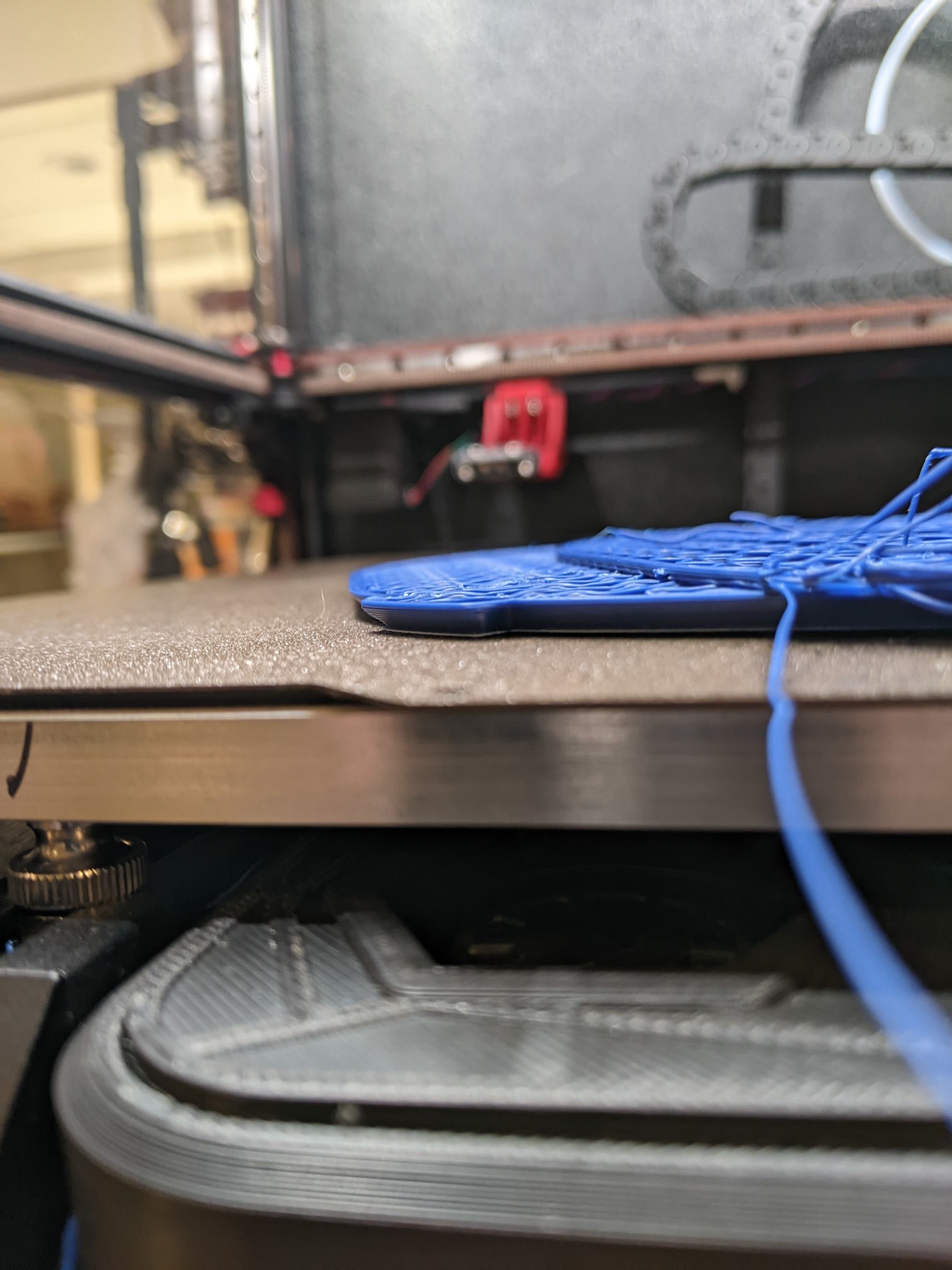Any suggestions before trying again after a reset? This is my first go round changing nozzle diameter. I went from a 0.4 mm nozzle to a 0.6 mm nozzle.
After the swap I checked my extrusion multiplier (no change needed) and tuned pressure advance (I had to decrease the value a bit, but it looks spot on now).
As part of the nozzle swap, I also bumped line width from 125% to 150% in Orca Slicer (should be around 0.9mm extrusion width) and increased layer height to 0.3mm. This should put me around 22 mm^3/s of material, which shouldn’t be an issue for a Rapido 2 but this is the most flow I’ve pushed through it so far. Maybe I should bump temp a touch? I’m still at my fairly-low-for-ASA 230 that I was using with my 0.4mm nozzle.
The print didn’t move on the bed and shows no signs of warpage. There also aren’t any signs of curling on the areas that the nozzle must have hit to cause the layer shift.
The only thing that seems like a miss was having z lift turned off while troubleshooting a print quality issue. I had it set to only lift above 0.25mm (not on the first layer) and only lift below z 0mm (this probably disabled z-hop). Z hop when retracting is set to 0.2mm, which is less than my 0.4mm retraction length so it seems like changing the “only lift below below z” value would re-enable z-hop.





Do a test print on something smaller (and cheaper!), if it’s a z issue it should occur based on height right? So print something relatively tall and thin.
No weird properties/looks on the stuff that did print?
(Relative noob myself here)
I’ve had a few smaller prints go off without any problems, but could always give something a little taller a go just to be safe.
It could be layer adhesion being hampered by bed temp. What are you printing in? Does it have a lot of warping at the corners?
I think I found what was happening. Z hop was off and as the nozzle traveled at warp speeds over the print it was touching the prior layer ever so slightly. I think it snagged the infill in this print. Trying again with a hotter extruder and z-hop on.
It’s printing in an acrylic enclosed Voron 2.4. Zero warping.